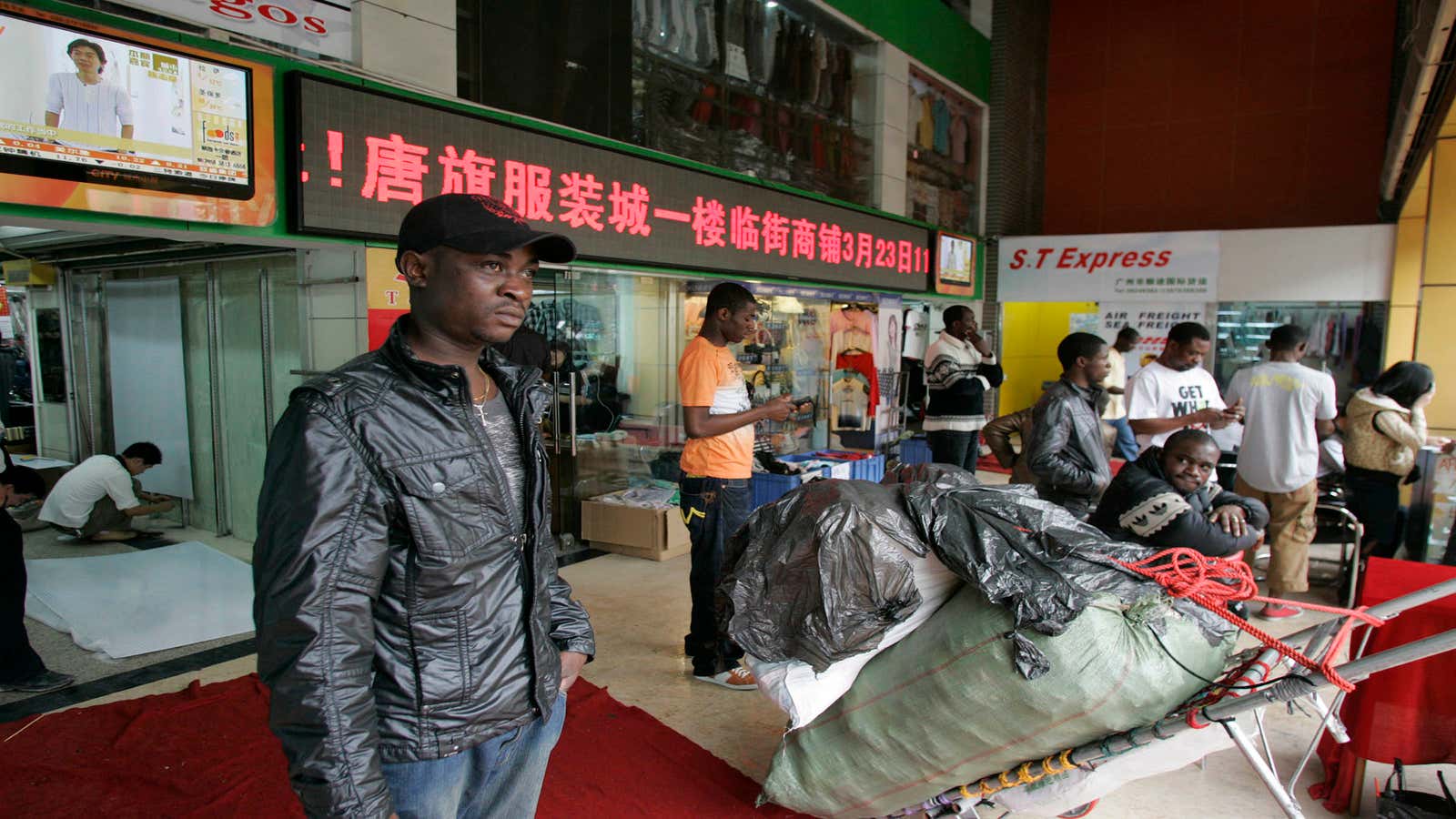Kingsley Azieh Che, from Cameroon, is known around Guangzhou as the “King of suits.” He owns a mens suit factory as well as a paper factory. Emmy MacAnthony, from Nigeria, owns a restaurant but eventually wants to make movies in China. Favour Prosper, who lost her restaurant in a scam, now sells moi moi, a Nigerian bean snack, from a food stand in the African markets around the southern Chinese city.
Africans who have made Guangzhou their home are the subject of a recently released documentary, Guangzhou Dream Factory, made by filmmaker Christiane Badgley and co-producer Erica Marcus. Estimates of African migrants in Guangzhou, a trading hub, range from 20,000 to 100,000 or more. They’re often discussed in terms of their interactions with local Chinese, in cases of blatant racism or fears that African migrants are criminals. Earlier this year, a Chinese official said, “Africans bring many security risks.”
Badgley and Marcus have focused instead on the lives of the migrants themselves, showing the entrepreneurialism and dynamism of a group that share the same aspirations as immigrants elsewhere in the world.
Quartz: What did you want to show about this community that other portrayals haven’t?
Christiane Badgley: It was important for us to share images of Africans that we rarely see in Western; in particular the US media: dynamic, striving, resilient, entrepreneurial. Some of the people in the film are struggling—that’s true—but they are all determined to get ahead.
Working on projects set in Africa and with African filmmakers for many years, I’m acutely aware of the problematic portrayals of Africans in Western media. We hope that Guangzhou Dream Factory will expand Americans’ understanding of African realities and allow a more nuanced appreciation of the challenges facing the continent.
Q: What do you hope people will take away from the film?
CB: At a time when the US and other Western governments want to shut their doors and keep “foreigners” out, it’s important to remind people that we are all connected. Africans in Guangzhou are also like immigrants anywhere. Some are adventurers, but most are simply looking for a better life.
Q: Some of the people in your film are doing well in Guangzhou while others have had to go home. Who normally succeeds?
CB: From what we saw, the people who succeed in the business realm are those who are already doing business at home. They have networks; they have capital. We hear that Africans must move increasingly large quantities of goods to make money today, and that certainly favors those with more experience and funds.
Many people imagine that it is easy to make money in China. Of course, people also hear about jobs and have no way of knowing that those jobs are, for the most part, non-existent. It’s hard to get the news back to Africa, as many who have traveled are reluctant to let family members back home know how hard things really are.
Q: Is it true that Guangzhou’s African community, or “Chocolate City,” is shrinking or disappearing?
CB: We are hearing that people are leaving, that the community is not growing. It appears that the visa restrictions and immigration crackdowns are having an impact on the community. And there is increasing competition in Africa from Chinese business people and this impacts the Africans who work from China. There are still people coming and going. There’s still business to do, but it’s harder now than it was a few years ago.
